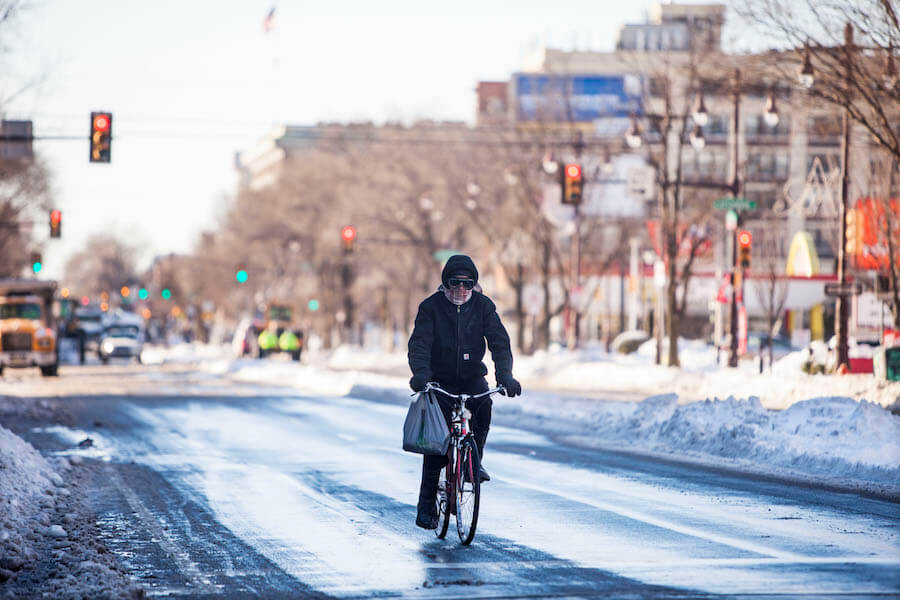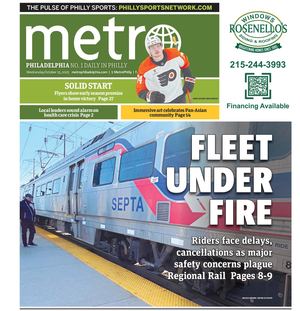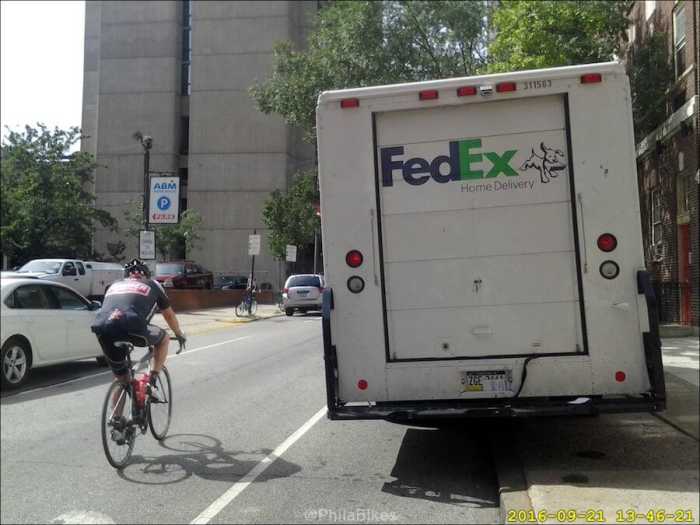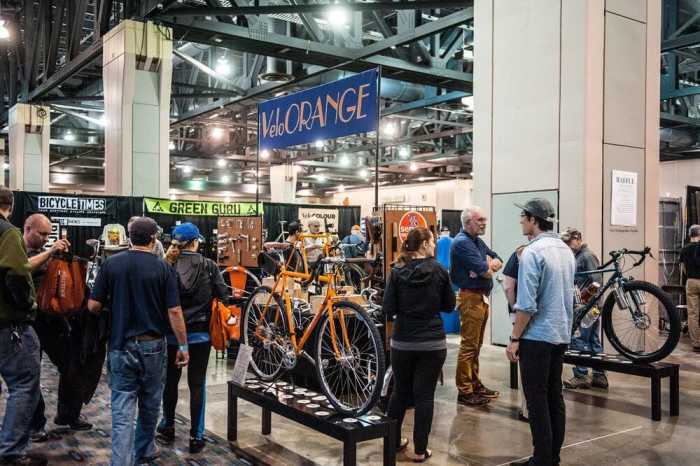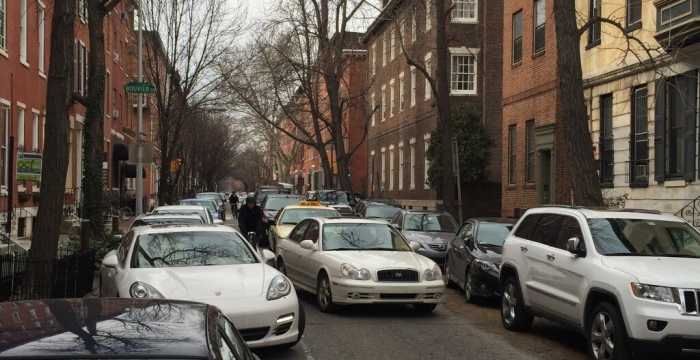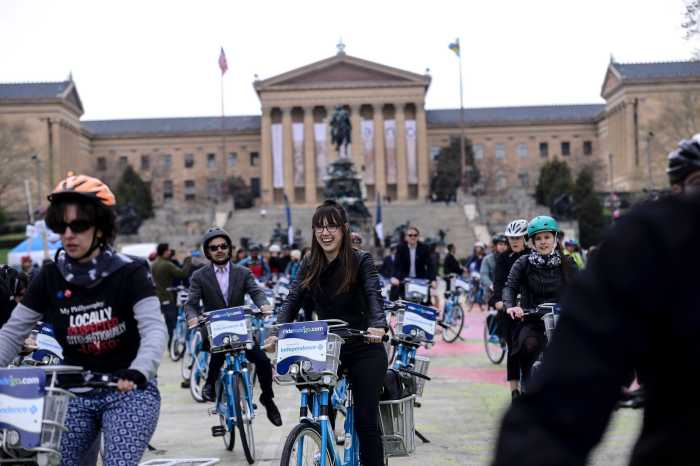There were no explosives at Thomas Jefferson University Hospital last Tuesday night, but at least one person there for the monthly Washington West Civic Association meeting was on watch.
A resident of the Washington West neighborhood in Center City, he and dozens of others were on hand to hear from city representatives about physically-protected bike lanes. Specifically, on the already-painted 10-foot buffered lanes on Spruce and Pine streets through Center City. Those lanes are regularly obstructed by parked cars and trucks, leaving cyclists dangerously exposed to motor vehicle traffic. But for that one resident, it wasn’t the cyclists who were at risk when traveling on Spruce and Pine — it was everyone else. With Philadelphia’s homicide rates slightly up in 2016, the man, who was not identified, worried that bicyclists could be carrying explosives, and perhaps set them off at any time. “That takes the prize for the most bizarre argument against bicyclists that I have ever heard,” notes William West, a bicycle advocate from Center City, and one of dozens who attended the community meeting. In 2015, the Philadelphia Parking Authority issued 358 parking tickets per month for cars parked in bike lanes—the plurality of which were on Spruce and Pine streets. As of October 2016, the PPA had actually issued 381 per month this year for the same offense, and these same streets were, again, the most offensive. So-called “Not in my backyard” arguments against people who travel by bicycle are not new. Bike lanes are regularly, incorrectly, and often pre-emptively blamed for everything from choking motor vehicle traffic to hurting businesses. Actually, bike lanes have been proven to both reduce traffic, and help commerce. Go figure. “With a network of car-free, protected bike lanes we could easily quintuple the number of people bicycling in Philadelphia,” adds West. “And that would be very good for the city in many ways, from reducing congestion to cleaning the air to improving the health of many of the people who live here.” As Philadelphia begins debating the installation of a 30-mile protected bike lane network over the next five years (one of Mayor Jim Kenney’s campaign promises), it’s important to know which arguments hold water, and which are created out of thin air. In the year “fake news” penetrated social media and a national presidential campaign, it seems Philly’s bike lane debate is just as vulnerable to anonymous creativities as anyone else. First off, before Tuesday’s meeting even got started, there were rampant rumors, innuendo and plain old lies circling the blocks about bike lanes. Representatives of the City of Philadelphia were invited to explain what protected bike lanes were, and how they worked. They came with a presentation showing off 14 different ways to protect cyclists from motor vehicles. But not all had arrived with an open mind. A flier went up in Washington West before the meeting, noting protected bike lanes can block emergency vehicles from getting by (not true), and that the Bicycle Coalition of Greater Philadelphia would potentially support a bike lane that blocks these vehicles — which is false by every stretch of the imagination. We’d also heard the city had planned on installing the bike lane in secret, any day now. That’s not true. And not possible.
Once at the meeting, well after one man claimed cyclists were carrying explosives, we heard claims there are no laws governing cyclists (not true); that the Pine Street bike lane shifts from the right to the left after 10th Street (not true); and when debating bike lanes, Philadelphia shouldn’t be compared to some of our peer cities, like New York and Chicago…for some reason. Actually, there are several types of protection for bike lanes that can be installed, including a raised bike lane that’s taller than the street pavement, but shorter than the sidewalk, and does not include plastic posts. And if need be, emergency vehicles could easily get by on these sorts of infrastructure. Unless, of course, said emergency vehicle were blocked by a parked car.
Randy LoBasso is communications manager at the Bicycle Coalition for Greater Philadelphia.
‘Fake News’ poisons bike lane debate
